The restaurateur couple who overcame arson threats
- Published

Htet Myet Oo and Isabella Sway-Tin now run a growing restaurant empire
When a group of friends proudly opened a restaurant, they didn't expect someone to threaten to burn it down.
But that is what happened when Htet Myet Oo and his three co-founders launched the Rangoon Tea House in Yangon, the largest city in Myanmar, in 2014.
Now 28, Htet Myet Oo had the idea of modernising Burmese food, and taking it upmarket.
So when the Rangoon Tea House opened its doors, it was a sleek, stylish eatery that would not look out of place in London or New York.
And its modern takes on Burmese cuisine had prices four or five times higher than the normal in Yangon.
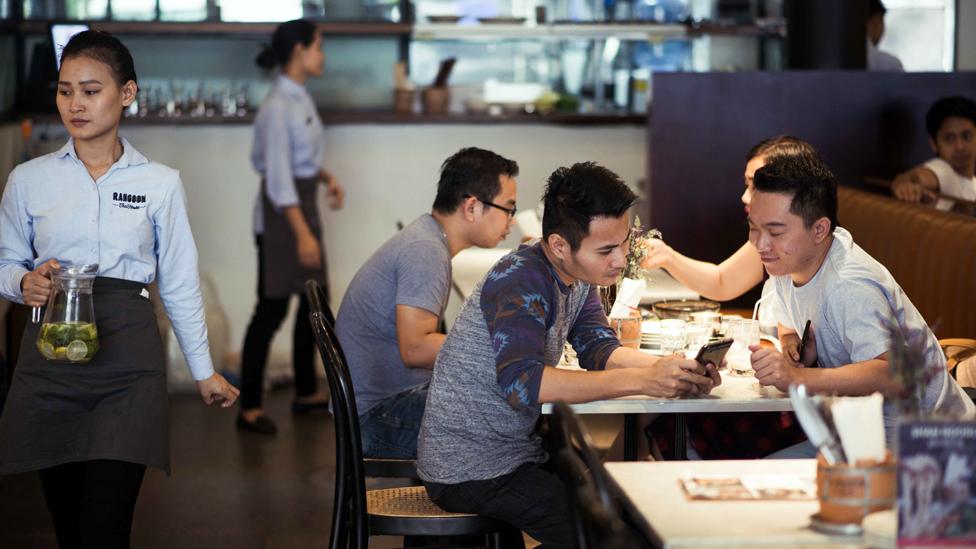
The Rangoon Tea House serves up to 700 customers per day
"Everyone thought we were crazy for selling Burmese food at a higher price," says Htet Myet Oo.
Yet while some thought the founders were mad, others were angry about the high prices and perceived gentrification. The hostility, including the threat of arson, came generally online.
"It was mainly Burmese people living abroad," says Isabella Sway-Tin, his fiancee, who joined the business in its second year.
"They would write really nasty comments online, and it would be shared a lot."
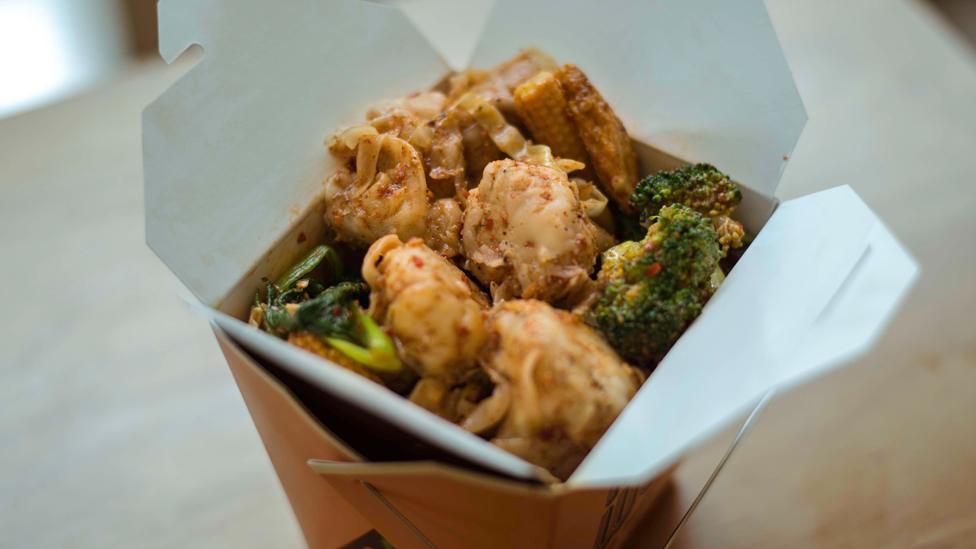
The restaurant sells Burmese dishes with a modern twist
Thankfully, for the Rangoon Tea House, the storm passed. And from serving 60 customers a day in its first year, it now has an average of around 600 and 700.
Today the couple run the business together, after the other co-founders left in 2015 to pursue other interests, and are now building a restaurant empire in Yangon.
While plans are in place for a second branch of Rangoon Tea House, 18 months ago they launched Mr Wok, an Asian street food restaurant chain that now has four outlets across the city.
Rangoon Tree House also runs a catering business creating canapes for dinner parties or more recently, 2,700 people at a religious occasion. A curry restaurant called Buthee, is also due to open its doors in Yangon.
"Everything we think about now is about scalability," says Htet Myet Oo. "We want to be able to open something where we can see at least 10 or 20 of them."
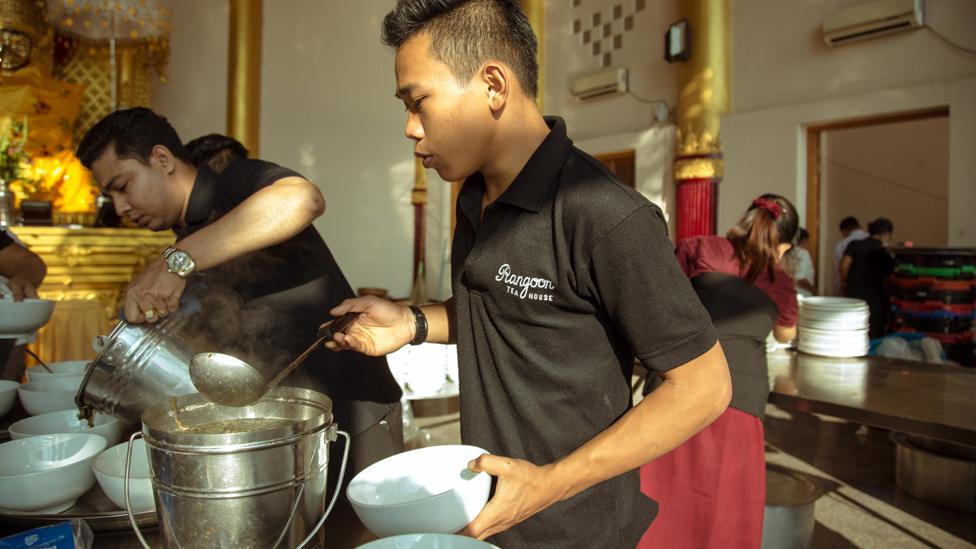
The business provides accommodation for staff who need it
Born in Myanmar, Htet Myet Oo left the country when he was four after his parents decided to relocate the UK.
He was brought up in Sunderland in the north-east of England, from where he still has the strong accent. After studying economics at university in London the self-confessed foodie decided to return to Myanmar, where he was keen to work in the food and drink industry.
First working for the Yangon Heritage Trust, a non-government organisation that aims to protect the city's historic buildings, he and three friends invested $80,000 (£59,000) to open Rangoon Tea House in central Yangon.
It's prices range from 1,500 kyat ($1.10; 82p) for a chicken and lentil broth, to 9,500 kyat for a chicken curry. Customers are a mixture of locals, expats, and travellers from around the world.
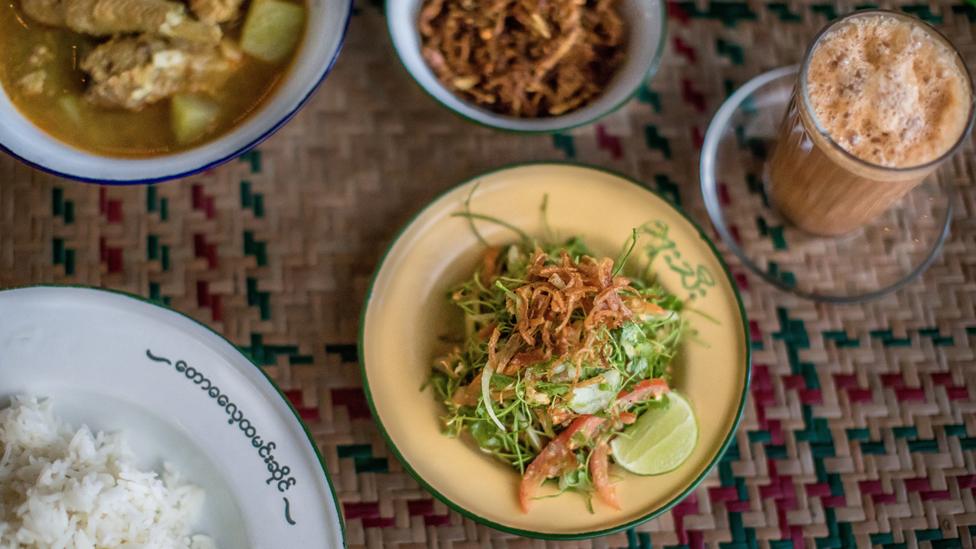
Prices at the Rangoon Tea House are much higher than most restaurants in Yangon
"I wanted to open something that if you were in the UK would feel like authentic Burmese, but if you were here could feel anywhere in the world like London or New York," says Htet Myet Oo.
While the couple retain a majority stake in the business, they have taken on venture capital investors in recent years, which has helped them to expand.
Htet Myet Oo won't reveal exact financial details, but says that the company's revenues have doubled for each of the past three years.
"We want to keep growing at that rate for the next four or five years... or until my hair falls out," he jokes.
"What we're trying to do now is find a balance between being a major food group, and a boutique one... everything we do must represent something better than what is currently in the market, but of course that takes more time and effort."
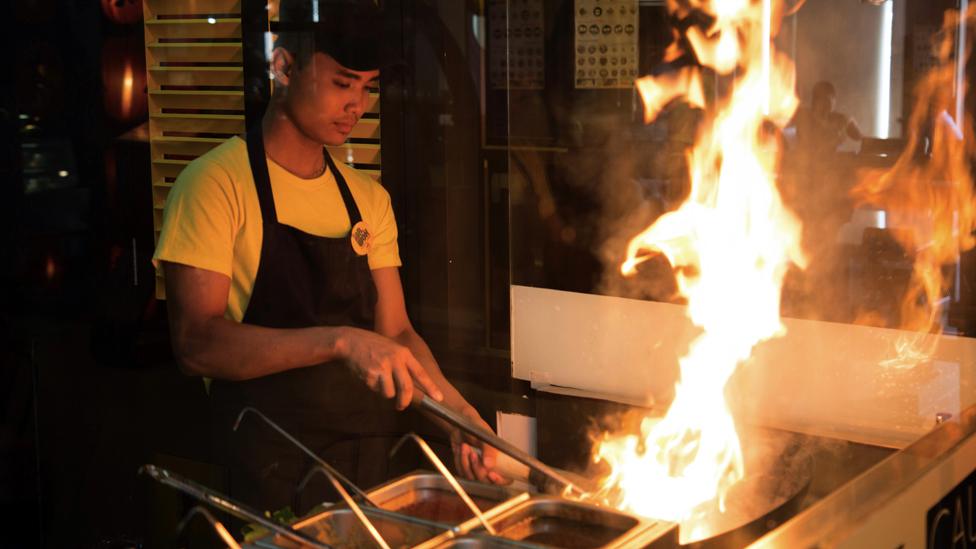
Staff who perform well get bonuses
While going to cafes and restaurants is a popular pastime in Myanmar - its so-called tea shops are part of the country's cultural identity - some commentators are cautious about the outlook for the sector.
They say that continuing international condemnation of the government's treatment of Myanmar's Rohingya ethnic minority has led to a fall in international visitor numbers to the country.
"There's challenges for growth linked to the number of resident expats, which is declining, as well as falling foreign tourist visitors," says Jason Copland, general manager at the Myanmar office of market research group TNS.
He adds that Yangon is also "challenging" for restaurants like Rangoon Tea House because "diners need to jump into a car to travel anywhere".
"And there are limited dining and drinking precincts compared with cities like HCMC [Ho Chi Minh City] in Vietnam, Singapore and Bangkok."
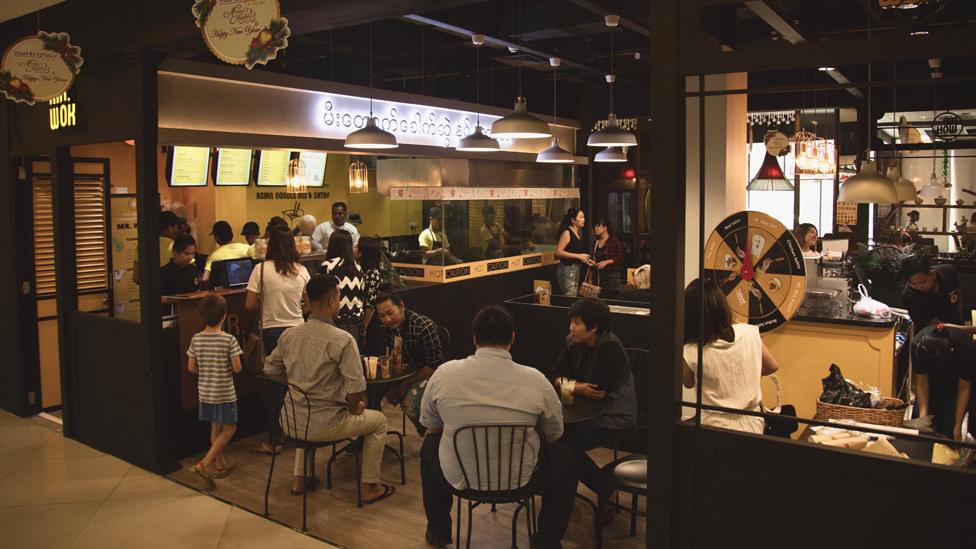
The company now also runs a chain called Mr Wok
Now with 180 employees across all the business, it is staffing issues that most keep Htet Myet Oo and Isabella Sway-Tin on their toes.
Much of Yangon's young workforce has migrated to the city from the countryside, and they struggle to be able to afford to rental accommodation.
As a result, the Rangoon Tea House houses about 60 of its workers across five hostels.
"We have to provide accommodation, meals and transportation," says Isabella Sway-Tin.

More The Boss features, which every week profile a different business leader from around the world:

The couple also offer performance-related bonuses to staff to encourage them to stay with the business in a city where staff often frequently change jobs.
Despite the busy nature of their jobs, Htet Myet Oo and Isabella Sway-Tin say they are very pleased to be able to work together.
"If we did different things we'd probably never see each other anyway, as the restaurant industry doesn't stop," says Isabella Sway-Tin. "It's bought us together, and I couldn't see it any other way."